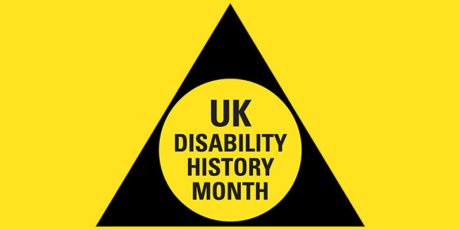UK Disability History Month (UKDHM) takes place from 20 November to 20 December 2025. This annual event celebrates the achievements of disabled people and examines ongoing barriers to equality.
This year’s theme, “Disability, Life and Death,” invites reflection on how society values life itself. The theme resonates strongly with Stewarts’ work on behalf of clients who have experienced life-changing injury or illness and continue to demonstrate strength, resilience and adaptability as they rebuild their lives.
The 2025 theme: challenging perceptions of value
The UKDHM campaign describes this year’s theme as a reflection on the “value of disabled people’s lives”. It comes amid renewed debate around proposed assisted suicide legislation, which many disabled campaigners warn risks reinforcing the idea that disability equates to suffering or diminished quality of life.
At the centre of this conversation lies Article 10 of the UN Convention on the Rights of Persons with Disabilities (UNCRPD), which affirms every person’s inherent right to life and requires states to ensure its full enjoyment on an equal basis.
As Baroness Jane Campbell, crossbench peer and disability rights advocate, has stated, disabled people are still too often made to “plead for our lives” in policy debate. This sobering truth reminds us that equality is not simply about access or representation, but rather is about recognising every life as intrinsically valuable.
The history of disability rights in the UK demonstrates how far attitudes have evolved. Institutionalisation, exclusion and lack of representation once shaped the experience of many disabled people. Although significant progress has been made, barriers still exist, including gaps in support provision, inaccessible environments and under-resourced services.
Understanding this context helps ensure that future legal and policy decisions strengthen rather than erode the principle that all lives carry equal worth.
The social model of disability and the law
Central to the UKDHM message, and our work, is the social model of disability. It distinguishes between impairment, ie a person’s physical, sensory or cognitive condition, and disability, which arises from environmental and attitudinal barriers. In practice, this model informs much of modern equality legislation.
Under the Equality Act 2010, employers and service providers have a legal duty to make reasonable adjustments to remove obstacles to participation. These adjustments might include flexible working arrangements, accessible technology or physical adaptations to premises.
Stewarts sees these principles in action across our Personal Injury, International Injury and Medical Negligence teams. We represent clients whose lives have been irrevocably altered by catastrophic injury or illness. Through litigation, our lawyers secure compensation that funds specialist rehabilitation, adaptive technology and accessible housing. These measures help clients regain independence and re-establish stability in their daily lives.
One example is Johan’s story, which illustrates how compensation was secured for lifetime support for a client who sustained a spinal cord injury following a road traffic collision. The case demonstrates how a successful claim can provide access to essential rehabilitation, care and equipment, enabling a client to live independently and confidently.
Our Pro Bono department also plays a vital role in protecting the rights of people with disabilities. The team provides free legal support to those navigating complex issues such as welfare benefits, housing and community care support, often working with local authorities and healthcare providers to ensure that statutory duties are fulfilled. This work ensures individuals can access assistance and entitlements designed to support independent living.
Supporting dignity and autonomy
The theme of “Disability, Life and Death” also offers an opportunity to consider how legal systems can uphold dignity and autonomy.
Effective legal frameworks do more than resolve disputes; they help to create the conditions for independence and participation. Whether through compensation that enables adaptive housing or securing vital welfare benefits, the law can play a constructive role in improving quality of life.
Many of Stewarts’ clients demonstrate that recovery is not solely medical, but also social and psychological. The right combination of legal support, rehabilitation and community infrastructure can help people rebuild their confidence and restore agency.
These outcomes illustrate that valuing life is not about sentience, but about ensuring access to the tools and systems that make participation possible.
Looking forward: building on progress
As Disability History Month 2025 approaches, the legal profession has an opportunity to reflect on how its practices and instructions can continue to remove barriers. We encourage all organisations, leaders and individuals to take practical steps to embed inclusion:
- Reflect on accessibility: review recruitment, physical spaces and digital platforms to ensure inclusivity.
- Engage with lived experience: involve disabled people in shaping policy, processes and client experience.
- Share knowledge: promote understanding of the legal protections available under the Equality Act 2010 and related frameworks.
By doing so, workplaces and public institutions can continue to move beyond compliance towards genuine equality of opportunity.
Recognising the value of every life
Disability History Months provides an opportunity to pause and consider the broader impact of equality law in practice.
Stewarts is privileged to work alongside clients whose experiences demonstrate both the challenges and the possibilities of life after serious injury or illness. Their determination reinforces the importance of a legal system that supports not only survival, but independence and quality of life.
As the 2025 theme reminds us, the value of life is not defined by circumstances or ability. It is realised through respect, access and inclusion, principles that remain central to our work and ethos.
If you require assistance from our team, please contact us.
Subscribe – In order to receive our news straight to your inbox, subscribe here. Our newsletters are sent no more than once a month.

